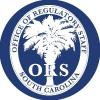State

Governor Youngkin Commits More Than $59.5 Million in Virginia Telecommunication Initiative Grants
Governor Glenn Youngkin (R-VA) announced more than $59.5 million in grants through the Virginia Telecommunications Initiative (VATI) for 14 projects serving 20 localities throughout Virginia. The VATI program provides targeted funding to extend service to areas that are presently underserved by any broadband provider. The goal of VATI is to create strong, competitive communities throughout the Commonwealth by preparing those communities to build, utilize, and capitalize on telecommunications infrastructure.
Florida Department of Economic Opportunity Announces $133 Million Available Through the Broadband Opportunity Program
The Florida Department of Economic Opportunity (DEO) commited $133 million in funding to broadband Internet projects in the second application cycle through the Broadband Opportunity Program. The program was created to expand broadband Internet service to unserved areas of this state, which will encourage job creation, capital investment, and the strengthening and diversification of local economies.
Ohio ‘ahead of the game’ with broadband workforce training, says Lt. Gov
Like most states, Ohio has its own approach to bolstering broadband accessibility. One area where Ohio is seeing progress, Lt. Governor Jon Husted (R-OH) said, is in enhancing its broadband workforce. Lt. Gov Husted, who also leads Ohio’s Office of Workforce Transformation, explained Ohio State University (OSU) has developed a curriculum for 5G and high-speed internet expansion, which can be used by other colleges and universities as well as the private sector.
New York Attorney General James Secures $615,000 from Companies that Supplied Fake Comments to Influence FCC’s Repeal of Net Neutrality Rules
New York State Attorney General Letitia James (D-NY) secured $615,000 from three companies—LCX, Lead ID, and Ifficient—that supplied millions of fake public comments to influence a 2017 proceeding by the Federal Communications Commission (FCC) to repeal net neutrality rules.

2023 Digital Equity Spark Grantees
The 2023 Digital Equity Spark Grantees and their projects are:
Internet costs, poor service keep southeast Ohioans offline
According to the US Census Bureau, between 2017 to 2021, about 28% of households in Ohio’s Columbiana County (more than 11,500 households) did not have an active broadband subscription. A similar problem exists across rural Appalachia in Ohio — and it is an expensive problem to fix. Regions like Southeast Ohio present a challenge to installing broadband due to the hilly and rural terrain.
West Virginia keeps working to extend broadband, Carmichael tells lawmakers
West Virginia development officials have been focusing on expanding broadband internet service through a range of resources, Development Secretary Mitch Carmichael told legislators. Money is flowing from federal, state, and local sources; specifically $33 million in state and local recovery funds, $70 million in Capital Project Funds (CPF), and $44 million in private investment.

How the FCC National Broadband Map Impacts the BEAD Program, Part 2 of 3: The Role of States and Territories in Selecting Locations Eligible for BEAD Funding
One of the primary uses of the Federal Communications Commission's National Broadband Map for the purposes of the Broadband Equity, Access, and Deployment (BEAD) program is the allocation process – the process of determining the amount of BEAD funds between the states, territories, and the District of Columbia (“Eligible Entities”).
Maryland Supreme Court Urged To Strike Down Digital Ad Tax
Comcast and Verizon urged Maryland's highest court to strike down a 2021 law that imposes a tax on some digital ads, arguing both that the statute violates the Constitution, and that it conflicts with a 1998 federal law. The hearing centered on a 2021 Maryland law that imposes taxes on some online companies with more than $100 million in digital ad revenue.


